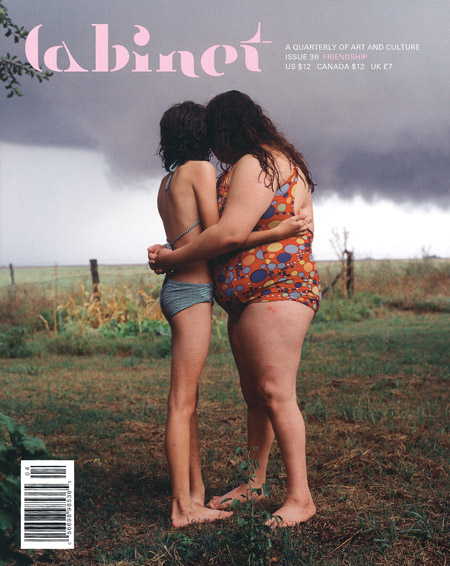Avery F. Gordon: The Hawthorn Archive: Letters from the Utopian Margins (2018)
Filed under book | Tags: · abolitionism, anarchism, archive, black people, capitalism, colonialism, friendship, politics, race, racism, slavery, utopia

“The Hawthorn Archive, named after the richly fabled tree, has long welcomed the participants in the various Euro-American social struggles against slavery, racial capitalism, imperialism, and authoritarian forms of order. The Archive is not a library or a research collection in the conventional sense but rather a disorganized and fugitive space for the development of a political consciousness of being indifferent to the deadly forms of power that characterize our society. Housed by the Archive are autonomous radicals, runaways, abolitionists, commoners, and dreamers who no longer live as obedient or merely resistant subjects.
In this innovative, genre- and format-bending publication, Avery F. Gordon, the “keeper” of the Archive, presents a selection of its documents—original and compelling essays, letters, cultural analyses, images, photographs, conversations, friendship exchanges, and collaborations with various artists. Gordon creatively uses the imaginary of the Archive to explore the utopian elements found in a variety of resistive and defiant activity in the past and in the present, zeroing in on Marxist critical theory and the black radical tradition. Fusing critical theory with creative writing in a historical context, The Hawthorn Archive represents voices from the utopian margins, where fact, fiction, theory, and image converge.
Reminiscent of the later fictions of Italo Calvino or Walter Benjamin’s Arcades Project, The Hawthorn Archive is a groundbreaking work that defies strict disciplinary, methodological, and aesthetic boundaries. And like Ghostly Matters: Haunting and the Sociological Imagination, which established Gordon as one of the most influential interdisciplinary scholars of the humanities and social sciences in recent years, it provides a kaleidoscopic analysis of power and effect. The Hawthorn Archive’s experimental format and inventive synthesis of critical theory and creative writing make way for a powerful reconception of what counts as social change and political action, offering creative inspiration and critical tools to artists, activists, scholars across various disciplines, and general readers alike.”
Publisher Fordham University Press, 2018
ISBN 0823276325, 9780823276325
xii+472 pages
Interview with author: Krystian Woznicki (transversal, 2019).
Review: Eddie Bruce-Jones (Race & Class, 2019).
PDF (46 MB)
Comment (0)Cabinet, 36: Friendship (2010)
Filed under magazine | Tags: · art, culture, friendship, philosophy, psychology, self

“The nature of friendship has been a subject of inquiry from the beginnings of the western philosophical tradition. Socrates considers the question of philia in one of Plato’s earliest dialogues, declaring that his “passion for friends” causes him to value them above even gold. Subsequent thinkers have continued the inquiry, yet friendship remains a phenomenon that “may well be reckoned,” as Emerson wrote, “the masterpiece of nature.”
Issue 36 of Cabinet, with its special section on friendship, features Svetlana Boym on Hannah Arendt’s definition of friendship as freedom from “totalitarianism for two”; Ruben Gallo on Freud’s school friend with whom he communicated mainly in Spanish; and Regine Basha on Sol Lewitt’s exchange of gifts with other artists. Elsewhere in the issue: Paul La Farge on the color black; Kevin McCann on the life and work of schizophrenic author Louis Wolfson, the object of fascination for a generation of French intellectuals; Helen Polson on the fate of lost teeth; Bertell Ollman on his infamous board game Class Struggle; and an artist project by Zoe Bellof.”
Edited by Sina Najafi
Publisher Immaterial Incorporated, New York, Winter 2009/10
HTML
Other issues (articles from sold-out issues are available online)
Giorgio Agamben: What is an Apparatus? And Other Essays (2006-) [IT, EN, PT]
Filed under book | Tags: · apparatus, friendship, knowledge, philosophy, power

“The three essays collected in this book offer a succinct introduction to Agamben’s recent work through an investigation of Foucault’s notion of the apparatus, a meditation on the intimate link of philosophy to friendship, and a reflection on contemporariness, or the singular relation one may have to one’s own time.
‘Apparatus’ (dispositif in French) is at once a most ubiquitous and nebulous concept in Foucault’s later thought. In a text bearing the same name (‘What is a dispositif?’) Deleuze managed to contribute its mystification, but Agamben’s leading essay illuminates the notion: ‘I will call an apparatus,’ he writes, ‘literally anything that has in some way the capacity to capture, orient, determine, intercept, model, control, or secure the gestures, behaviors, opinions, or discourses of living beings.’ Seen from this perspective, Agamben’s work, like Foucault’s, may be described as the identification and investigation of apparatuses, together with incessant attempts to find new ways to dismantle them.
Though philosophy contains the notion of philos, or friend, in its very name, philosophers tend to be very skeptical about friendship. In his second essay, Agamben tries to dispel this skepticism by showing that at the heart of friendship and philosophy, but also at the core of politics, lies the same experience: the shared sensation of being.
Guided by the question, “What does it mean to be contemporary?” Agamben begins the third essay with a reading of Nietzsche’s philosophy and Mandelstam’s poetry, proceeding from these to an exploration of such diverse fields as fashion, neurophysiology, messianism and astrophysics.”
“What is an Apparatus?” was originally published in Italian as Che cos’è un dispositivo?, Nottetempo, 2006
“The Friend” was originally published in Italian as L’amico, Nottetempo, 2007
“What Is the Contemporary?” was originally published in Italian as Che cos’è il contemporaneo?, Nottetempo, 2008
English edition
Translated by David Kishik and Stefan Pedatella
Publisher Stanford University Press, 2009
Meridian: Crossing Aesthetics series
ISBN 0804762309, 9780804762304
56 pages
Commentary: Matteo Pasquinelli (Parrhesia, 2015).
Publisher (EN)
Che cos’è un dispositivo? (Italian, 2006)
L’amico (Italian, 2007)
Che cos’è il contemporaneo? e altri scritti (Italian, 2010)
What is an Apparatus? And Other Essays (English, trans. David Kishik and Stefan Pedatella, 2009)
O que é o contemporâneo. e outros ensaios (Portuguese, trans. Vinícius Nicastro Honesko, 2009)

